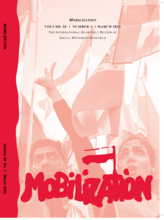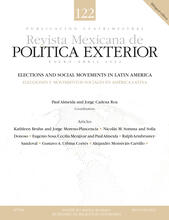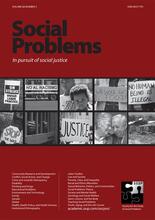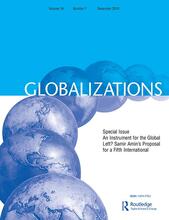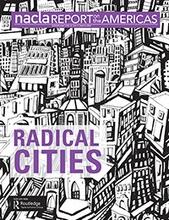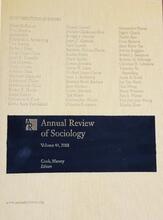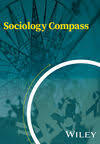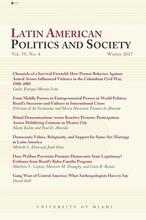One starting point for building a movement capable of unleashing multiple rounds of collective action is an incubator campaign—a period of widespread unrest around a particular issue that may last several months or longer. The mobilizing success of the incubator campaign provides the resource infrastructure for subsequent episodes of related movement activity in similar geographical locations, even years into the future. We test these assertions by examining immigrant rights campaign activity in over 260 cities in California between 2006 and 2019. The incubator campaign was positively associated with producing local-level collective action in a wide range of like-minded campaigns sustaining a larger immigrant rights movement in the state. The findings also suggest that an incubator campaign’s influence may eventually decay over time. Still, newly infused protest campaigns can reactivate immigrant activist momentum to counter ongoing hostile political environments faced by excluded populations.
Publications by Type: Journal Article
2023
Repressive and economic threats drive much of the popular mobilization in Central America, but those conditions need to be articulated to publics in a manner that emphasizes the need for collective action to ameliorate worsening harms. Examination of protest songs in both periods of heightened state repression (1970–1990) and heightened economic threats (1990–present) in Costa Rica, El Salvador, Guatemala, Honduras, and Nicaragua demonstrates that musicians and cultural producers actively construct lyrics and musical styles that resonate with subaltern populations and encourage social movement participation in the face of state repression and neoliberal policy implementation.
Las amenazas represivas y económicas han inducido buena parte la movilización popular en Centroamérica, pero estas condiciones deben articularse ante los públicos de manera que enfaticen la necesidad de acción colectiva como respuesta a problemas cada vez más graves. Un análisis de las canciones de protesta pertenecientes a los períodos de mayor represión estatal (1970-1990), así como a aquellos con mayores amenazas económicas (1990 al presente) en Costa Rica, El Salvador, Guatemala, Honduras y Nicaragua demuestra que tanto músicos como productores culturales construyen activamente letras y estilos musicales que encuentren resonancia entre las poblaciones subalternas. Así fomentan la participación dentro de los movimientos sociales, aun frente a la represión estatal y la implementación de políticas neoliberales.
2022
2021
The paper examines the individual-level building blocks of getting out the vote (GOTV) for electoral parties that represent subaltern sectors in resource scarce environments. Drawing on theories of protest waves, social movement fields, and threat-induced collective action, we examine the likelihood of campaigning in left party electoral mobilization and party identification. The study implements a modified version of the Caught in the Act of Protest: Contextualizing Contestation (CCC) survey protocol and respondent selection design. We use a sympathy pool sample of over 1,200 May Day participants in Costa Rica, El Salvador, and Honduras to explain the micro-foundations of electoral proselytizing of political parties advocating for disadvantaged populations. We found that involvement in left party electoral campaigning was largely driven by resources deposited during anti-neoliberal protest waves, including prior movement-type protest, civic organizational activity, and economic threat perceptions. Campaigning for the anti-neoliberal party was also associated with a higher level of post-election party identification. The findings suggest that left parties may at times partially overcome economic and political resource deficits by mobilizing individuals deeply embedded in the social movement field.
2019
2018
A growing body of scholarship acknowledges the increasing influence of global forces on social institutions and societies on multiple scales. We focus here on the role of globalization processes in shaping collective action and social movements. Three areas of global change and movements are examined: first, long-term global trends and collective action; second, research on national and local challenges to economic globalization, including backlash movements and the types of economic liberalization measures most associated with inducing oppositional movements; and third, the emergence of contemporary transnational social movements. In each of these arenas we address debates on diffusion, intervening mechanisms, and the outcomes of collective mobilization in response to global pressures.
The disciplinary fields of immigration and social movements have largely developed as two distinct subareas of sociology. Scholars contend that immigrant rights, compared to other movements, have been given less attention in social movement research. Studies of immigrant-based movements in recent decades have reached a stage whereby we can now assess how immigrant movement scholarship informs the general social movement literature in several areas. In this article, we show the contributions of empiricalstudies of immigrant movements in four primary arenas: (a) emergence; (b) participation; (c) framing; and (d) outcomes. Contemporary immigrant struggles offer social movement scholarship opportunities to incorporate these campaigns and enhance current theories and concepts as earlier protest waves advanced studies of collective action.
2017
Using an innovative survey of protest participants and nonparticipants from five major street demonstrations in Mexico City in 2011 and 2012, this study tests the assumption that influences on protest participation vary across different types of events; namely, ritual demonstrations and reactive protests. The comparison is based on two assumptions: that these are two of the dominant forms of protest in contemporary Latin America, and that specifying the context for different types of social movement participation provides a better understanding of the individual mobilization process for groups seeking to defend their rights or gain new benefits. The comparative analyses reveal some crucial differences. Political interest and previous political experience are more influential in the decision to take part in reactive demonstrations. For ritual demonstrations, the decision to participate tends to be driven more by personal and organizational connections.

